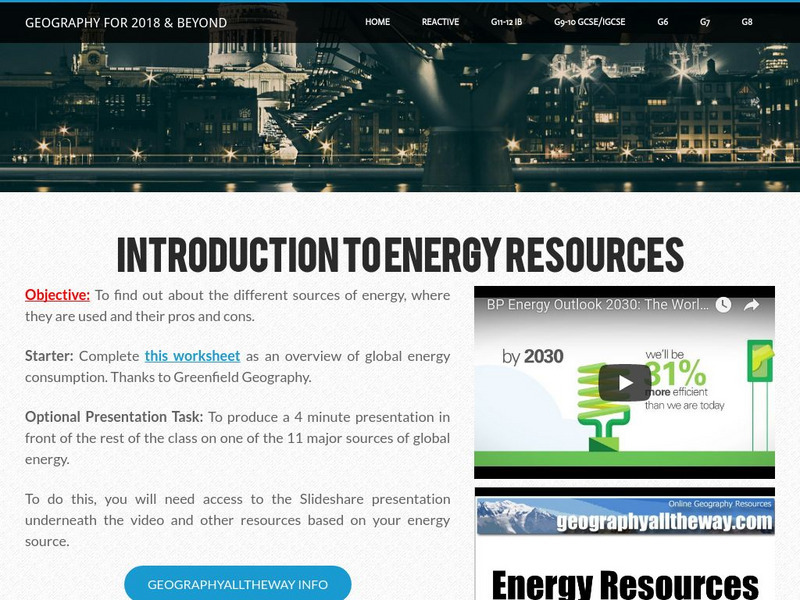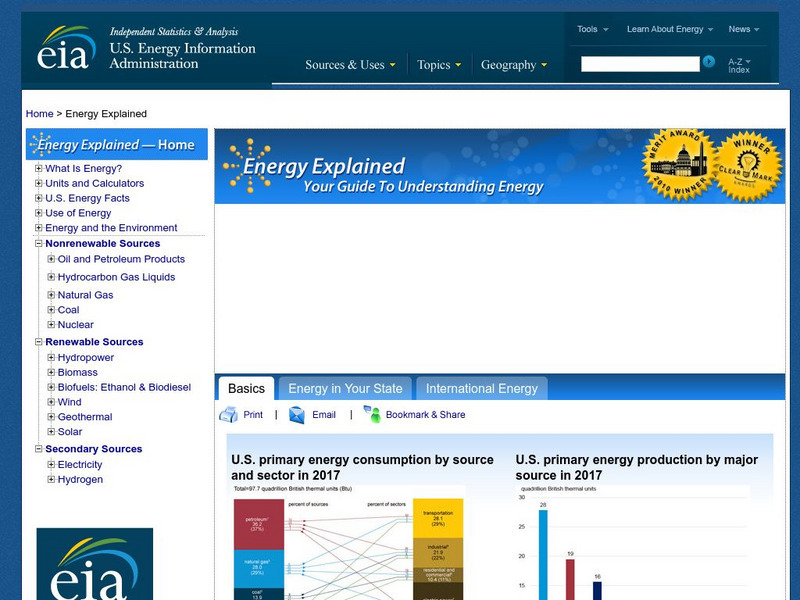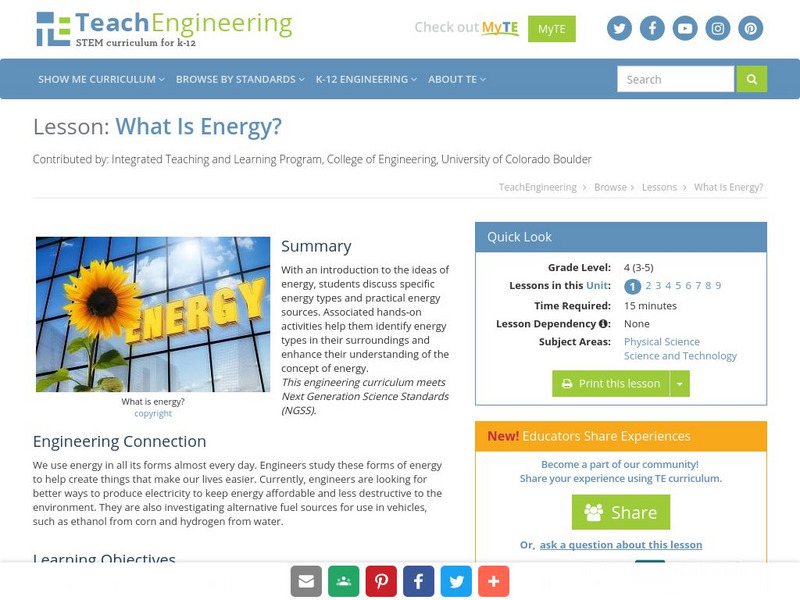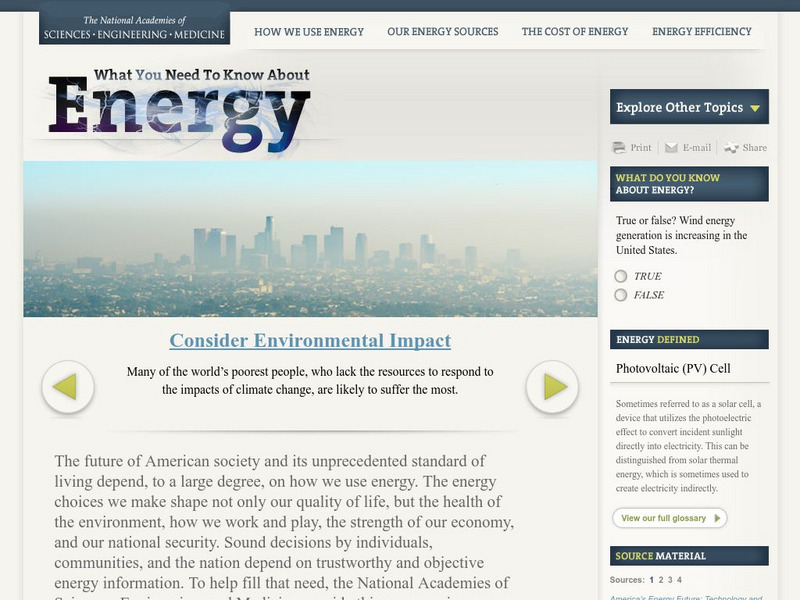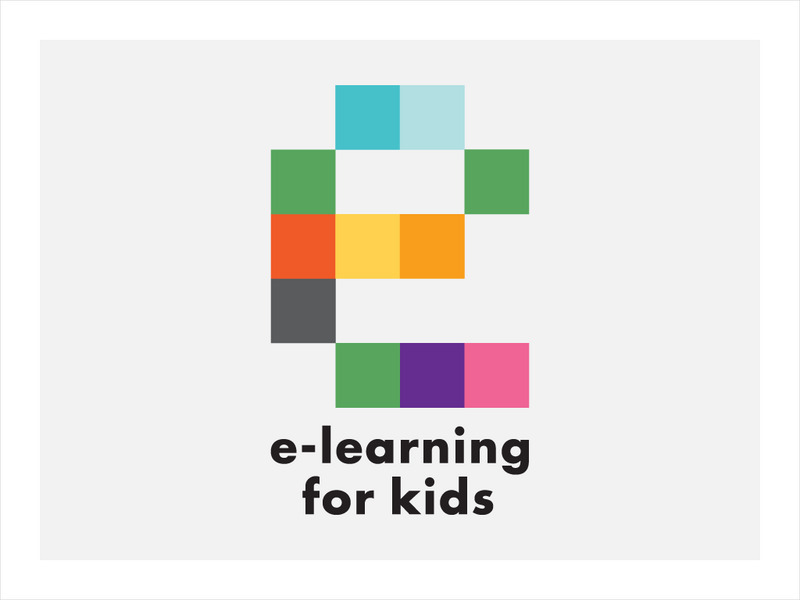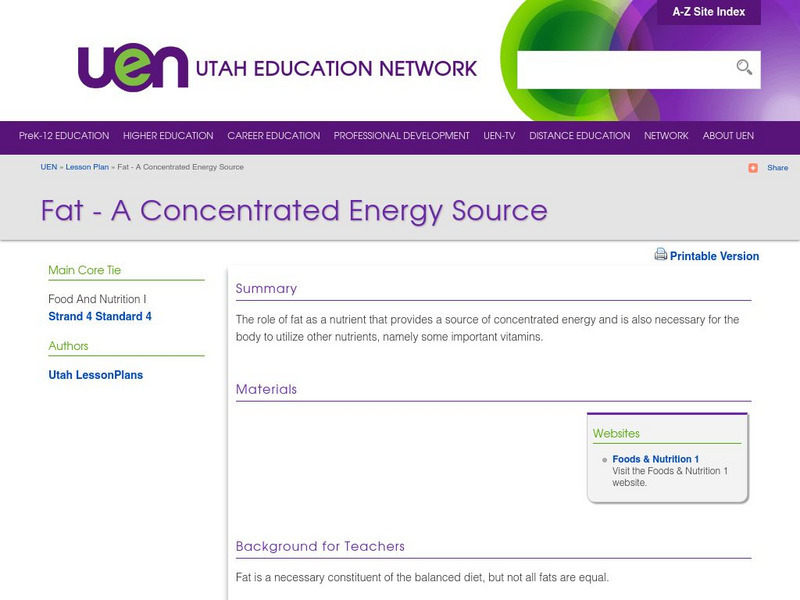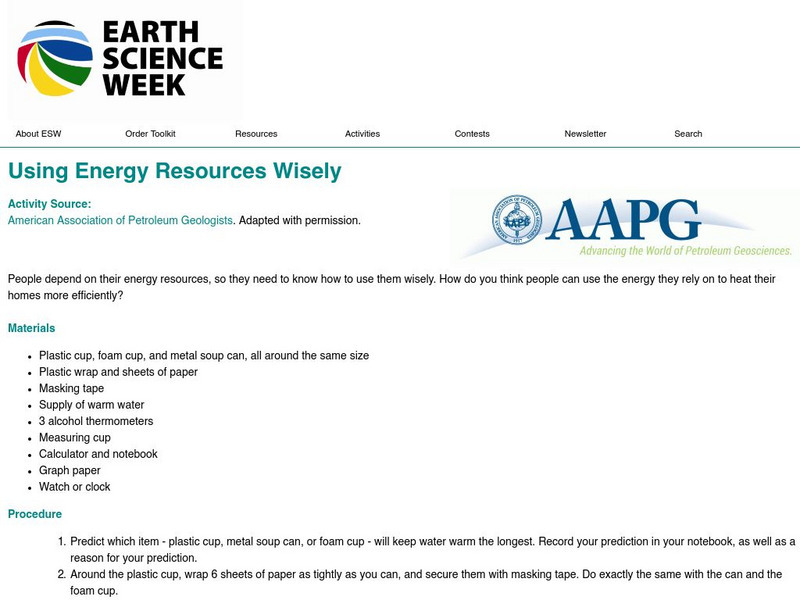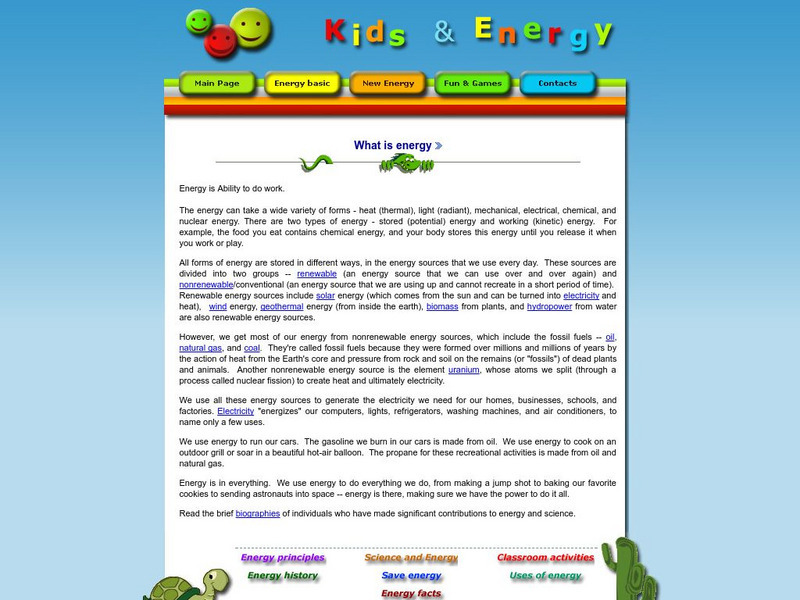Hi, what do you want to do?
Curated OER
What Do Plants Need to Grow?
Fourth graders control variables to determine the effect on plant growth. They collect information by observing and measuring and construct simple graphs, tables, maps and charts to organize, examine and evaluate information.
National Geographic
National Geographic: The Right Balance: Mixing Energy Resources
In this lesson, students look at profiles of energy production for different regions of the United States. They examine the conversion efficiency and the carbon dioxide emissions of each type of energy, and then the environmental impact...
Geographypods
Geographypods: Theme 3: Economic Development: Energy Systems
This learning module looks at human-made systems of energy, covering different types of energy and power stations. Includes handouts, slideshows, maps, activities, photographs, an interactive animation, and videos.
Encyclopedia of Earth
Encyclopedia of Earth: Energy
A collection of articles on energy-related topics, including fossil fuels, conservation, alternative energy, and environmental issues.
TeachEngineering
Teach Engineering: Energy
Through nine lessons, students are introduced to a range of energy types--electrical, light, sound and thermal-as well as the renewable energy sources of wind, hydro (water) and solar power. Subjects range from understanding that the...
CK-12 Foundation
Ck 12: Earth Science: Introduction to Energy Resources
[Free Registration/Login may be required to access all resource tools.] Overview of the types of energy, and how it can be stored and released.
CK-12 Foundation
Ck 12: Earth Science: Introduction to Energy Resources
[Free Registration/Login may be required to access all resource tools.] Overview of the types of energy and how it can be stored and released.
CK-12 Foundation
Ck 12: Earth Science: Introduction to Energy Resources
[Free Registration/Login may be required to access all resource tools.] Overview of the types of energy, and how it can be stored and released.
CK-12 Foundation
Ck 12: Earth Science: Introduction to Energy Resources Study Guide
This comprehensive study guide covers the main terms and concepts needed for an earth science unit on energy resources. Review questions are included at the bottom of the study guide.
US Energy Information Administration
U.s. Eia Energy Kids: Energy Explained
A comprehensive source of information about energy in all its forms. Each type of energy is explained, along with information about its environmental impact, supported with graphs, charts, and other data. There is a twenty-question quiz...
TeachEngineering
Teach Engineering: What Is Energy?
With an introduction to the ideas of energy, students discuss specific types of energy and the practical sources of energy. Hands-on activities help them identify types of energy in their surroundings and enhance their understanding of...
National Academies of Sciences, Engineering, and Medicine
The National Academies: Our Energy System
This interactive presents the many sources of energy in the United States, showing in a flow chart how much of each type of energy is used. Pop-up windows provide more information at the different branches in the chart.
Energy for Sustainable Development
Esd Bulgaria: Kids and Energy: Evolution of Energy Sources
Describes how the sources of energy used by humans have evolved over the centuries.
E-learning for Kids
E Learning for Kids: Science: Antilles: What Are the Different Forms of Energy?
Students will learn about the different types and sources of energy, including heat and light, electrical, potential, and kinetic energy.
Energy4Me
Energy4me: Energy Sources of the World [Ppt]
Learn about the many different energy resources available from our Earth. Find out the pros and cons of each type: both renewable and nonrenewable.
Utah Education Network
Uen: Fat a Concentrated Energy Source
Through these lesson plans, students explore and discuss the role of dietary fat as an important energy source. In addition to providing detailed instructions for teachers, this website includes all the handouts and charts needed to...
American Geosciences Institute
American Geosciences Institute: Earth Science Week: Using Energy Resources Wisely
Students test which type of material retains heat the longest.
PBS
Pbs Learning Media: Deciding Your City's Energy Future
Students learn about fossil fuels and renewable energy sources to help them decide which type of energy should be used to power a city's electric grid in the coming decades.
E-learning for Kids
E Learning for Kids: Science: Cayman Islands: What Is Energy Conservation?
Renewable and nonrenewable energy sources are described, different types of energy, and how energy can be conserved.
Energy for Sustainable Development
Esd Bulgaria: Kids & Energy: What Is Energy
Explains what energy is, the forms it takes and how it is stored, and what humans use it for. Has links in the text to more information about key vocabulary words and to short biographies of significant people who have contributed to our...
TeachEngineering
Teach Engineering: Energy Detectives at Work
Students search for clues of energy around them. They use what they find to create their own definition of energy. They also relate their energy clues to the engineering products they encounter every day.
National Geographic
National Geographic: Encyclopedic Entry: Non Renewable Energy
A good primer on non-renewable energy sources. Covers the overall advantages and disadvantages, and discusses the different types and their pros and cons. Includes a slideshow with captions.
Other
Texas Comptroller of Public Accounts: The Energy Report: Nuclear Energy [Pdf]
Chapter 8 of a report on the energy industry in Texas. It examines nuclear energy, what it is, its history, and its uses. The nuclear power industry in Texas is described, including uranium mining, and types of nuclear reactors and how...
Science Education Resource Center at Carleton College
Serc: Alternative Energy Debate
With a learning team, students choose an alternative energy source such as solar, wind, biofuel, geothermal or other form and research the pros and cons of that energy type. The team then splits into debate teams and draws straws to...







